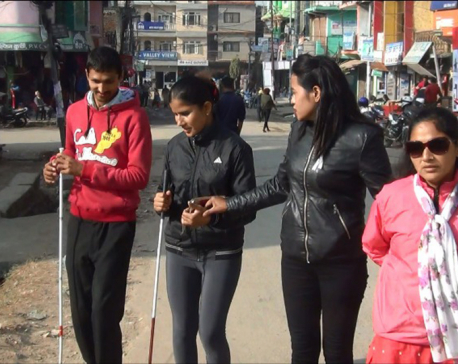
OR
New deals with India
There was both guarded optimism and a degree of skepticism in Kathmandu even while Prime Minister K P Sharma Oli was preparing for his state visit to India—his first foreign trip since assuming office for the second time in early February this year.
Optimism because Oli was visiting New Delhi as the strong PM with over two-third majority support in the House and he was expected to do something concrete to enhance relations between India and Nepal on economic and infrastructure development front. PM himself had told the House that he would not sign any new deal that would hamper Nepal’s interests.
There was some skepticism as well which stemmed largely from the fact that often Nepali PMs have signed the deals with southern neighbor which at domestic front breeds a lot controversy. ‘What if Oli also does the same?’ Many questioned. Prime Minister Oli seems to have been able to address both of these concerns, to a large extent.
He has been able to build partnership with India on some of the vital issues of connectivity and cooperation on infrastructure development fronts. The two countries have agreed to develop “an electrified rail line” connecting Kathmandu with Raxual of Bihar, the main highlight of 12-point joint communiqué issued by Prime Minister Narendra Modi and his Nepali counterpart.
This has been touted as being aimed at expanding connectivity to enhance people-to-people linkages and promote economic growth and development. Likewise, the two countries have signed a memorandum of understanding for partnership in agriculture and developing inland waterways for movement of cargo. Modi announced that Nepal won’t only be “land-linked” but also “water-linked” country, which means Nepal will have additional access to the sea.
Two PMs reiterated commitment to expedite all India-assisted projects including Arun III, Pancheshwar and Saptakosi-Sunkosi. Much awaited India-Nepal oil pipeline project, which when completed will save us one billion rupees in transport cost while importing oil from India, has been launched jointly. This is a good development.
That said, we must remain mindful of the fact that these deals will mean nothing for Nepal if they are not implemented on time, or if their implementation gets perennially delayed as is the case with most India-assisted projects. Thus the focus now should be to expedite implementation of the new deals and materializing the commitment on pending projects.
We take these developments in good faith, but some of the Indian press has suggested that India’s support for Kathmandu- Raxual project is a strategy to prevent Nepal from working on Nepal-Tibet railway project, which has a vital importance for us.
We hope Kathmandu-Raxaul rail line will not be at the cost of stalling Nepal-China railway and connectivity project. Doing so would be against our foreign policy principle of maintaining close, equal and balanced ties with India and China and benefitting from both of them.
As we have maintained in this space before, Nepal is in no position to tilt towards one neighbor at the cost of alienating or ignoring the other. PM Oli has come home with renewed optimism on Nepal’s connectivity infrastructure and hydropower projects. Only their timely implementation will determine whether his visit was successful.
You May Like This

Walk the talk
Rs. 1.31 trillion for FY 2018/19 ... Read More...

Walk the talk
PM’s pledge against impunity ... Read More...

Walk the talk
Though Asian countries have ratified CRPD, not much has been done by the governments for persons with intellectual disabilities ... Read More...





Just In
- CM Kandel requests Finance Minister Pun to put Karnali province in priority in upcoming budget
- Australia reduces TR visa age limit and duration as it implements stricter regulations for foreign students
- Govt aims to surpass Rs 10 trillion GDP mark in next five years
- Govt appoints 77 Liaison Officers for mountain climbing management for spring season
- EC decides to permit public vehicles to operate freely on day of by-election
- Fugitive arrested after 26 years
- Indian Potash Ltd secures contract to bring 30,000 tons of urea within 107 days
- CAN adds four players to squad for T20 series against West Indies 'A'













Leave A Comment